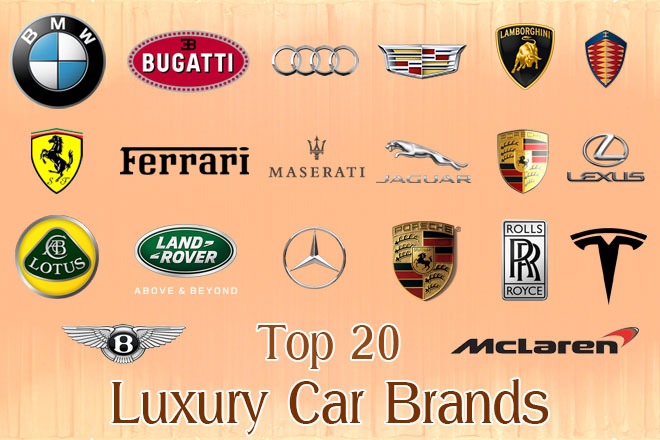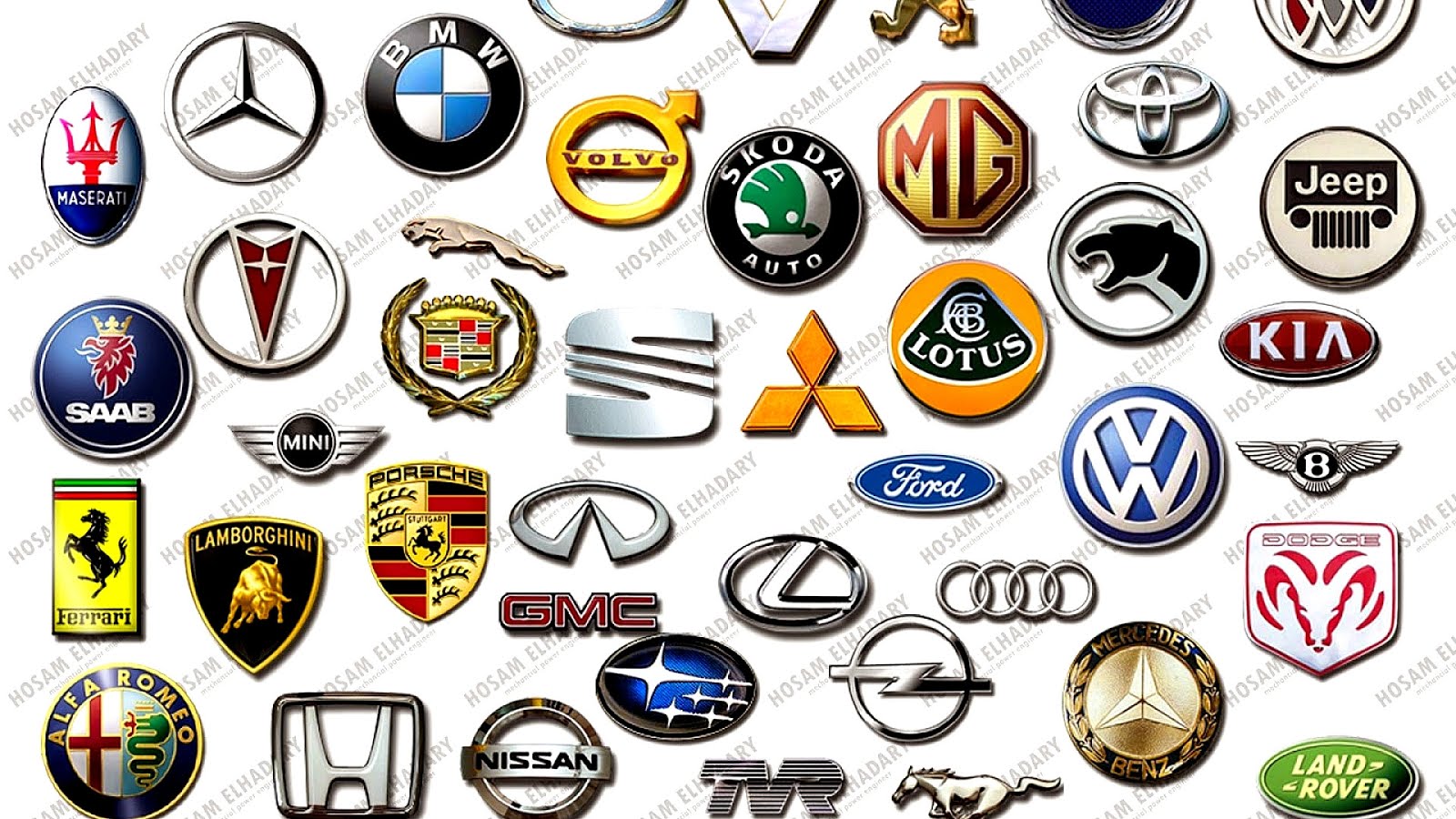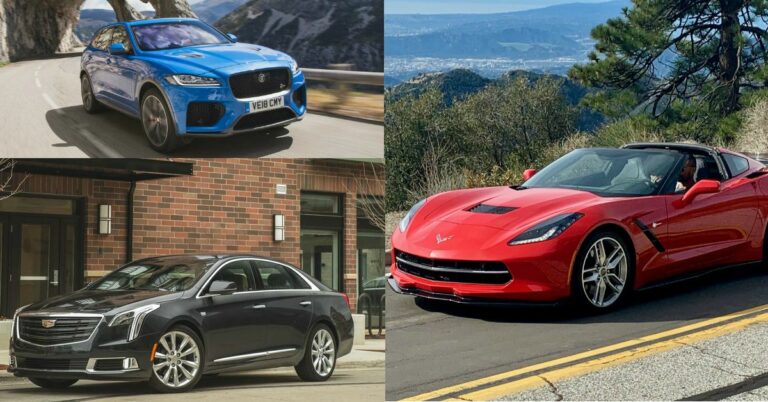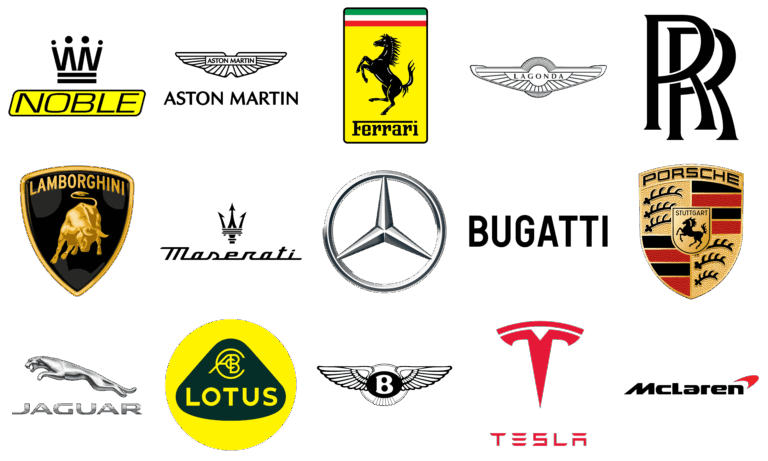Leading Luxury Car Brands
Leading Luxury Car Brands cars.truckstrend.com
In the realm of automotive excellence, certain names evoke an immediate sense of prestige, performance, and unparalleled luxury. These are the "Leading Luxury Car Brands," companies that have transcended mere transportation to become symbols of aspiration, innovation, and a refined lifestyle. More than just vehicles, they are meticulously crafted works of art, engineering marvels, and bastions of comfort designed to deliver an extraordinary experience. Understanding these brands is not just about appreciating their beauty and power; it’s about recognizing the pinnacle of automotive design, technological advancement, and customer-centric philosophy that drives the entire industry forward.
This comprehensive guide will delve into what defines these elite marques, profile the most prominent players, explore the evolving landscape of luxury, and offer practical advice for those considering an entry into this exclusive world.
Leading Luxury Car Brands
What Defines a Luxury Car Brand?
While a high price tag is often the most obvious indicator, true luxury in the automotive sector goes far beyond cost. It’s a holistic experience built upon several fundamental pillars:
- Exceptional Craftsmanship and Materials: Luxury cars feature interiors adorned with the finest leathers, real wood veneers, genuine metals, and carbon fiber. Every stitch, panel gap, and tactile surface is meticulously executed to perfection.
- Cutting-Edge Technology: These vehicles are pioneers in automotive innovation, integrating advanced infotainment systems, sophisticated driver-assistance features, predictive navigation, and seamless connectivity that often trickle down to mainstream vehicles years later.
- Superior Performance and Engineering: Whether it’s a powerful engine delivering exhilarating acceleration, a perfectly balanced chassis offering dynamic handling, or an adaptive suspension providing an impossibly smooth ride, engineering excellence is paramount.
- Exclusivity and Heritage: Many leading luxury brands boast a rich history spanning decades, even centuries, of innovation and iconic models. This heritage contributes to a brand’s mystique and exclusivity, often limiting production numbers for certain models.
- Unparalleled Comfort and Refinement: From whisper-quiet cabins to ergonomically designed seats with heating, cooling, and massage functions, every detail is engineered to ensure maximum comfort for occupants, even on long journeys.
- Personalization and Bespoke Options: The ability to customize a vehicle to an individual’s exact preferences, from paint colors to interior trims and unique features, is a hallmark of true luxury, often involving direct interaction with the manufacturer’s design team.
- Customer Experience: Ownership extends beyond the vehicle itself. Leading luxury brands offer exceptional after-sales service, exclusive events, concierge services, and a dedication to customer satisfaction that builds lifelong loyalty.

The Pillars of Luxury: Key Attributes
Each luxury car brand may emphasize different attributes, but they all excel in these core areas:

Performance & Engineering
This encompasses everything from the raw power of the engine to the precision of the steering and the responsiveness of the brakes. It’s about how the car handles, its acceleration, and its top speed. For some, it’s track-ready performance; for others, it’s effortless, refined power delivery. Advanced suspension systems, sophisticated drivetrains, and meticulous sound engineering contribute to a distinct driving character.
Interior Opulence & Comfort
This is where luxury truly comes alive. It’s about the sensory experience: the scent of premium leather, the soft touch of Alcantara, the gleam of polished wood or metal accents. Seating comfort, cabin quietness, climate control systems, and ambient lighting are all designed to create a serene and indulgent environment.
Cutting-Edge Technology

Luxury vehicles are often the first to showcase groundbreaking automotive technologies. This includes intuitive infotainment systems with large displays, advanced driver-assistance systems (ADAS) like adaptive cruise control and lane-keeping assist, sophisticated navigation, augmented reality features, and seamless smartphone integration. The tech is not just present; it’s seamlessly integrated and intuitive to use.
Design & Aesthetics
A luxury car is a statement. Its design, both exterior and interior, is distinctive, elegant, and often timeless. From the signature grille and distinctive headlights to the aerodynamic lines and perfectly proportioned silhouette, every element is carefully considered. Interior design follows suit, creating a cohesive and visually appealing space.
Brand Heritage & Exclusivity
The story behind the brand adds significant value. Decades, sometimes centuries, of innovation, racing victories, and royal patronage build a powerful narrative. Exclusivity can be maintained through limited production runs, bespoke commissioning processes, and a discerning clientele, making ownership a privilege.
Customer Experience & After-Sales
The relationship with a luxury brand extends far beyond the point of sale. This includes personalized sales experiences, white-glove delivery services, dedicated service advisors, pick-up and drop-off services for maintenance, and exclusive owner events. The goal is to make every interaction seamless, convenient, and exceptional.
Spotlight on Leading Luxury Car Brands
The luxury automotive landscape is diverse, with brands catering to different tastes and priorities.
The German Trinity & Japanese Precision: Engineering Prowess and Refinement
These brands are often the benchmark for luxury, known for their meticulous engineering, robust build quality, and a blend of performance and comfort.
- Mercedes-Benz: Synonymous with sophisticated luxury, unparalleled comfort, and pioneering technology. From the opulent S-Class to the performance-oriented AMG models and the iconic G-Wagen, Mercedes offers a vast range.
- BMW: "The Ultimate Driving Machine." BMW emphasizes driving dynamics, sporty performance, and engaging handling, combined with premium interiors and advanced technology. The 3 Series, 5 Series, and 7 Series sedans, along with their X-series SUVs, are global bestsellers.
- Audi: Known for its quattro all-wheel-drive system, minimalist yet elegant interior designs, and cutting-edge infotainment. Audi combines understated luxury with technological sophistication, seen in models like the A4, A6, A8, and Q7.
- Lexus: Toyota’s luxury division, renowned for its exceptional reliability, serene cabins, silky-smooth powertrains, and outstanding customer service. Lexus offers a distinctive blend of Japanese craftsmanship and unwavering dependability, exemplified by the ES, RX, and LS models.
The Ultra-Luxury & Performance Elite: Unrivaled Craftsmanship and Exclusivity
These brands exist in the stratosphere of luxury, offering bespoke options, extreme performance, and an unmatched level of prestige.
- Rolls-Royce: The epitome of bespoke luxury and automotive grandeur. Each car is largely hand-built, offering unparalleled personalization and an almost silent, "magic carpet" ride. Models like the Phantom, Ghost, and Cullinan SUV are symbols of ultimate status.
- Bentley: Blending British elegance with formidable power and craftsmanship. Bentley offers a sportier, more driver-focused luxury than Rolls-Royce, while maintaining exquisite materials and bespoke options. The Continental GT, Flying Spur, and Bentayga SUV are iconic.
- Aston Martin: British luxury sports cars known for their timeless beauty, powerful engines, and evocative exhaust notes. They represent sophisticated performance and classic elegance, seen in the Vantage, DB11, and DBS Superleggera.
- Ferrari & Lamborghini: Italian titans of high-performance luxury. These brands are all about speed, passion, and exotic design. While less focused on traditional comfort, their luxury lies in the thrill of driving and the exclusivity of ownership.
- McLaren: A purebred British supercar manufacturer with a strong racing heritage. McLaren focuses on lightweight construction, advanced aerodynamics, and track-focused performance, bringing F1 technology to the road.
The Innovators & Niche Players: Redefining Luxury for the Modern Era
These brands challenge traditional notions of luxury, often through specialization or by embracing new technologies.
- Porsche: While often categorized as a sports car brand, Porsche offers a unique blend of exhilarating performance and everyday usability, with luxurious interiors and advanced tech. The 911, Panamera, Cayenne, and Taycan (electric) are highly coveted.
- Tesla: The pioneer of electric luxury, Tesla redefined performance, connectivity, and minimalist interior design with its Model S, Model X, and Model 3/Y. Its over-the-air updates and autonomous driving capabilities set it apart.
- Genesis: Hyundai’s luxury arm, Genesis has rapidly established itself by offering compelling designs, advanced features, and strong performance at a competitive price point, providing excellent value in the luxury segment.
- Polestar: Volvo’s electric performance brand, Polestar combines Scandinavian design, sustainable materials, and advanced electric powertrains to offer a distinct, modern luxury experience focused on electrification and clean aesthetics.
The Evolution of Luxury: Trends and Future Outlook
The luxury car market is dynamic, adapting to changing consumer demands and technological advancements.
- Electrification: The shift to electric vehicles (EVs) is profound. Luxury brands are investing heavily in EV platforms, offering silent, powerful, and sustainable alternatives. Expect more electric flagships and performance models.
- Autonomous Driving & Connectivity: Semi-autonomous driving features are becoming standard, with fully autonomous capabilities on the horizon. Seamless connectivity, over-the-air updates, and integration with smart home ecosystems are also key.
- Personalization & Bespoke Options: As cars become more commoditized, the ability to create a truly unique vehicle becomes even more valuable. Bespoke programs will expand, offering unprecedented levels of customization.
- Sustainability & Ethical Sourcing: Luxury consumers are increasingly aware of environmental and social impact. Brands are responding by using sustainable materials (e.g., recycled plastics, vegan leather), promoting ethical sourcing, and aiming for carbon-neutral production.
- Experiential Ownership: Beyond the car itself, brands are focusing on creating exclusive experiences for owners, such as private track days, bespoke travel packages, and access to unique events.
Navigating the Luxury Market: Important Considerations
Choosing a luxury car is a significant decision. Here’s what to consider:
- Budget & Total Cost of Ownership: Beyond the purchase price, factor in insurance, maintenance, fuel/charging costs, and depreciation. Luxury cars generally have higher running costs.
- Lifestyle & Usage Needs: Do you need a spacious SUV for family, a sleek sedan for commuting, or a high-performance sports car for weekend thrills? Your daily needs should guide your choice.
- Technology & Features Priority: Are you a tech enthusiast who wants the latest infotainment and driver-assistance systems, or do you prefer a more analog, driver-focused experience?
- Brand Philosophy & Resale Value: Align with a brand whose values resonate with you. Research a brand’s typical depreciation rates if resale value is a concern.
- Test Drive & Dealer Experience: Always test drive multiple models to feel the differences. Pay attention to the dealer’s service, as this relationship will be important throughout your ownership.
Challenges & Opportunities in the Luxury Segment
The luxury car market faces unique challenges while also presenting exciting opportunities.
- Intensified Competition: New entrants and established brands are constantly innovating, making the market highly competitive.
- Regulatory Pressures: Stricter emission standards globally push brands towards electrification, requiring massive R&D investments.
- Shifting Consumer Demographics: Younger, tech-savvy luxury buyers may prioritize sustainability and digital integration over traditional heritage.
- Supply Chain Resilience: Global events can impact production, leading to longer wait times for high-demand models.
- Opportunity: The rise of electric platforms allows for new design freedoms and performance capabilities, potentially attracting a new generation of luxury buyers. The focus on sustainability also opens doors for innovative material science and ethical practices.
Practical Advice for Aspiring Luxury Car Owners
- Define Your Priorities: What truly matters to you? Performance, comfort, technology, exclusivity, or sustainability? Listing your top priorities will narrow down your choices.
- Thorough Research is Key: Don’t rely solely on brand reputation. Read reviews, watch videos, and compare specifications of models that interest you.
- Consider Pre-Owned Options: Luxury cars, like all vehicles, depreciate. A certified pre-owned (CPO) luxury vehicle can offer significant savings while still providing warranty coverage and the premium experience.
- Understand Maintenance & Insurance: Get quotes for insurance and inquire about typical service costs. Some brands offer prepaid maintenance plans that can be beneficial.
- Leverage Dealer Relationships: A good relationship with your luxury car dealership can enhance your ownership experience, from personalized service to access to exclusive events.
- Don’t Skip the Test Drive: This is crucial. Spend ample time driving the car in various conditions to ensure it meets your expectations for comfort, performance, and handling.
Representative Price Range Table for Leading Luxury Car Brands
Below is a table illustrating approximate starting price ranges for select leading luxury car brands, covering both their entry-level and flagship models. Please note that these figures are highly variable and serve only as a general guide.
| Brand | Entry-Level Model (Example) | Est. Starting Price (USD) | Flagship Model (Example) | Est. Starting Price (USD) | Key Differentiator |
|---|---|---|---|---|---|
| Mercedes-Benz | A-Class Sedan | $35,000 – $45,000 | S-Class Sedan | $115,000 – $180,000+ | Sophistication, Comfort, Cutting-Edge Technology |
| BMW | 2 Series Gran Coupe | $38,000 – $48,000 | 7 Series Sedan | $95,000 – $165,000+ | Driving Dynamics, Sporty Performance, Innovation |
| Audi | A3 Sedan | $36,000 – $44,000 | A8 Sedan | $90,000 – $155,000+ | Quattro AWD, Refined Design, Tech Integration |
| Lexus | ES Sedan | $43,000 – $52,000 | LS Sedan | $80,000 – $105,000+ | Reliability, Refinement, Exceptional Customer Service |
| Porsche | Macan | $60,000 – $75,000 | 911 Turbo S | $230,000 – $285,000+ | Sports Performance, Everyday Usability, Engineering |
| Rolls-Royce | Ghost | $350,000 – $400,000 | Phantom | $500,000 – $600,000+ | Ultimate Bespoke Luxury, Hand-Crafted Exclusivity |
| Bentley | Continental GT | $240,000 – $280,000 | Mulsanne (discontinued) / Bentayga EWB | $300,000 – $350,000+ | British Elegance, Power, Grand Touring Capability |
| Aston Martin | Vantage | $150,000 – $180,000 | DBS Superleggera | $330,000 – $370,000+ | Timeless Design, Evocative Performance, Exclusivity |
| Ferrari | Roma | $240,000 – $270,000 | SF90 Stradale | $550,000 – $650,000+ | Uncompromising Performance, Racing Heritage, Passion |
| Lamborghini | Huracán Tecnica | $250,000 – $300,000 | Revuelto | $600,000 – $650,000+ | Extreme Design, Vicious Performance, Exclusivity |
| Tesla | Model 3 | $40,000 – $55,000 | Model S Plaid | $90,000 – $115,000+ | Electric Performance, Autonomy, Software-Driven |
| Genesis | G70 Sedan | $42,000 – $55,000 | G90 Sedan | $90,000 – $100,000+ | Value Luxury, Distinctive Design, Advanced Features |
Disclaimer: Prices are approximate starting MSRPs (Manufacturer’s Suggested Retail Price) in the U.S. at the time of writing and are subject to change. They do not include options, taxes, destination fees, or regional variations. Ultra-luxury brands often have extensive customization programs that can significantly increase the final price, sometimes doubling it.
Frequently Asked Questions (FAQ) about Leading Luxury Car Brands
Q1: What is the primary difference between a luxury car and a regular car?
A1: Beyond price, luxury cars offer superior materials (e.g., real wood, genuine leather), advanced technology, higher performance, exceptional craftsmanship, greater comfort, bespoke customization options, and an elevated ownership experience including premium customer service.
Q2: Are luxury cars expensive to maintain?
A2: Generally, yes. Luxury cars use specialized parts, complex engineering, and require skilled technicians, leading to higher maintenance costs. However, many brands offer prepaid maintenance plans or included service for a certain period, and certified pre-owned vehicles often come with warranties.
Q3: Which luxury car brand is known for reliability?
A3: Lexus consistently ranks highly for reliability among luxury brands, often topping consumer satisfaction and dependability surveys. Acura and Genesis also perform well in this regard.
Q4: Do luxury cars hold their value well?
A4: Depreciation varies significantly by brand and model. While some high-demand sports cars or ultra-luxury limited editions can hold or even increase in value, most luxury cars depreciate faster than mainstream vehicles due to their higher initial cost and the rapid introduction of new technology. Porsche models tend to have relatively good resale values.
Q5: Is it worth buying a used luxury car?
A5: Buying a certified pre-owned (CPO) luxury car can be an excellent value proposition. It allows you to access premium features and performance at a significantly lower price, often with a manufacturer-backed warranty and thorough inspection, mitigating some of the risks associated with used cars.
Q6: What is the future of luxury cars?
A6: The future of luxury cars is heavily focused on electrification, advanced autonomous driving capabilities, hyper-personalization, sustainable materials, and creating immersive digital and experiential ownership journeys. Brands are striving to offer an even more seamless and personalized connection between the owner and their vehicle.
Concluding Summary
Leading luxury car brands represent the zenith of automotive achievement, where engineering prowess, artistic design, and a relentless pursuit of perfection converge. From the timeless elegance of a Rolls-Royce to the electrifying performance of a Tesla, these brands continually push the boundaries of what’s possible, setting trends for the entire industry. They offer more than just transportation; they provide a statement, an experience, and a glimpse into the future of mobility. Understanding their unique attributes and the evolving landscape of luxury ensures that whether one is an aspiring owner or simply an admirer, the allure of these magnificent machines remains undiminished.






